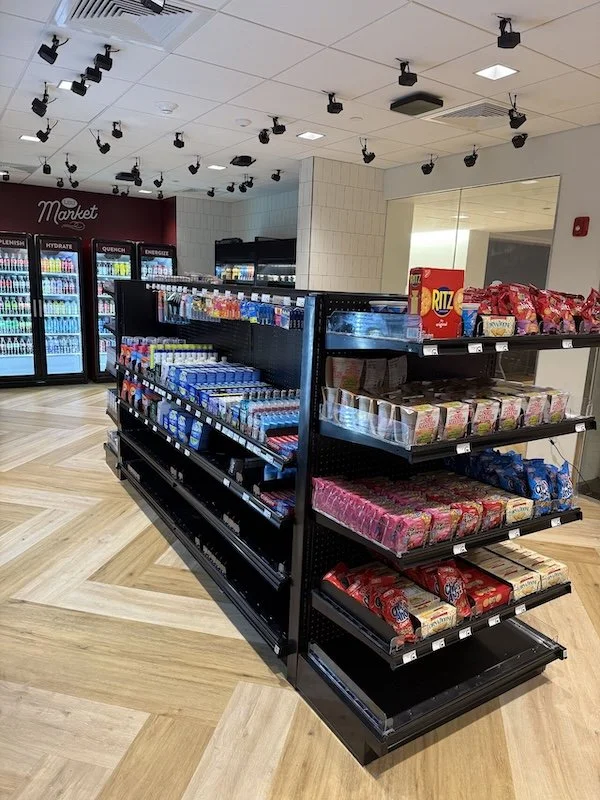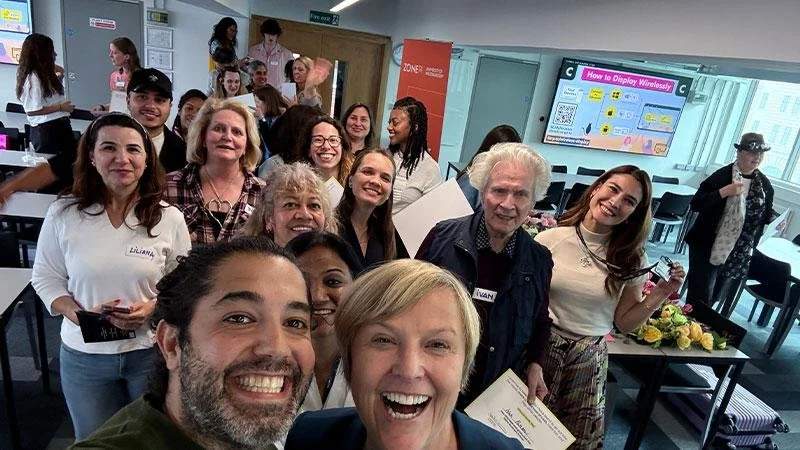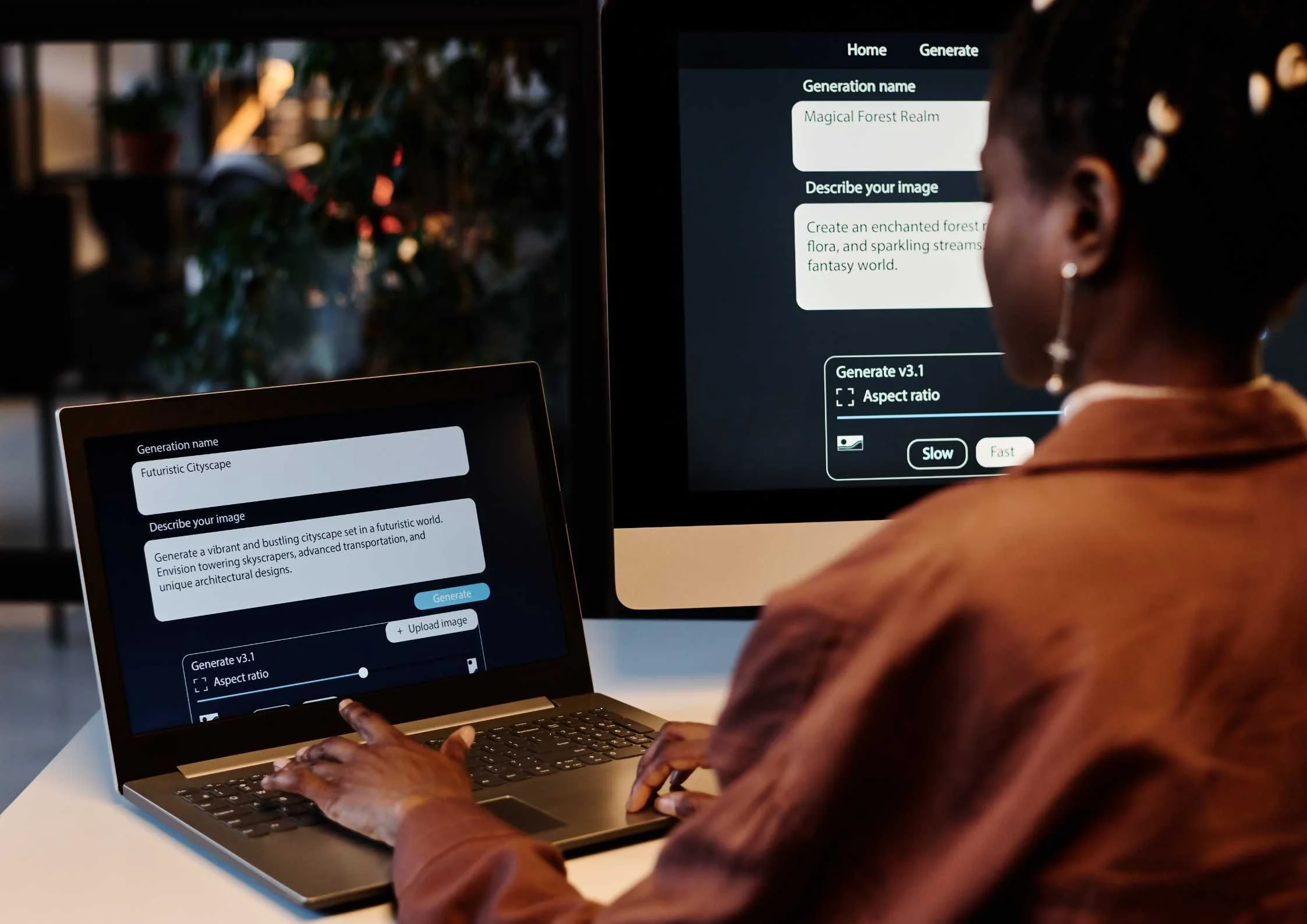EdTech innovator Christie Pang on revolutionising learning with AI
ETIH sat down with Christie Pang, the co-founder and co-CEO of Lirvana Labs, to talk about her new Yeti Confetti Kids app. With over a decade in business development and capital markets, Christie is no stranger to big challenges. She’s now using AI to personalise education for kids everywhere. In our exclusive interview, she shares the inspiration behind the app, the hurdles she overcame, and her vision for the future of learning.
What inspired you to create Lirvana Labs and develop the Yeti Confetti Kids app?
My brother and I created the Yeti Confetti Kids app during the COVID-19 pandemic, driven by a vision to make personalised learning accessible to all. Our aim was to reach families across the US, as well as refugee children affected by conflict worldwide.
During the peak of the pandemic, families found themselves thrust into the role of "homeschooling" while managing remote work. This shift, termed the 'new normal,' placed immense stress on households. The US Census Bureau reported in August 2020 that many households faced the challenge of balancing work responsibilities with childcare and schooling duties. A significant number of working-age adults had to halt their work due to disruptions in childcare arrangements.
Parents, particularly working mothers, became the unsung heroes of this crisis, adapting their routines to accommodate their children's education alongside other household responsibilities. Despite the challenges, they stepped up to support their children's learning, often taking on roles as tutors, teachers, and playmates.
Around this time, my co-founder and brother Clement and I reflected on the abundant technological resources available in Silicon Valley and questioned why there wasn't a stronger focus on utilising them to support families and educators.
We saw an opportunity to harness AI advancements to address the widening gap in access to quality education exacerbated by the pandemic. Determined to make a difference, we left our respective careers and dedicated ourselves to developing an AI-directed learning platform. We spent a lot of time brainstorming and testing our ideas with families, despite the initial simplicity and roughness of our prototype.
Our platform aimed to move beyond standardised testing and observe how children actually learn, recognising that traditional curriculums often fail to account for individual learning paces. We understood the importance of sequencing educational content and delivering instruction in a format accessible to all children, regardless of their reading abilities.
Traditional educational resources seemed to overlook these challenges, leaving a gap in personalised learning, especially for disadvantaged students. Our mission became clear: to address this gap by providing scalable, quality education tailored to individual needs.
Since launching in March 2023, Yeti Confetti Kids has provided over 160,000 minutes of AI-generated lessons to 15,000 families worldwide. We're focused on delivering a diverse range of English literacy, math, and social-emotional learning skills, reaching not only affluent communities but also partnering with organisations like Jusoor to support refugee children.
Our journey continues as we strive to make quality education accessible to all, leveraging the power of AI to create positive learning outcomes, even in the face of adversity.
Could you describe the journey from the idea stage to the actual development and launch of your app?
Rather than simply adhering to standardised test levels, we built the infrastructure to first observe whether kids master topics in any predictable, linear, curriculum-aligned fashion. The data confirmed what most teachers in classrooms already know – that students did not learn at a uniform, consistent pace the curriculum expects them to. Even though videos and games in apps do transfer knowledge, how they are sequenced to “scaffold” knowledge, what combination of multi-modal content is optimal, and the dependency on step-by-step oral instruction (not textual, as most students we serve aren’t readers yet) are of significant importance.
EdTech platforms and Educational TV shows didn’t seem to be tackling this. That is a hard issue to solve even in standards-aligned,resource-adequate classrooms where teachers can’t differentiate instruction as much as they would have wanted to. Personal tutoring is arguably the most effective supplement, but it is incredibly hard to deliver at scale and quality.
We confronted this issue head-on as we built our platform; it defined our problem statement and the main point of the target audience we wanted to serve. Our mission is not only to serve the mass audience that could afford the technology; we went straight to Jusoor and the refugee children displaced by war. If we wanted to prove our model’s efficacy and strength as the first-ever expert language model, capable of delivering learning outcome change “against all odds”, we need to start with where the widest gap exists.
In addition to delivering Yeti Confetti Kids to families on the App Store and Google Play and in pilot classrooms, we’ve partnered with needs-based schools to bridge ESL gaps in Thailand and Jusoor, an NGO that has served over 15,000 Syrian refugee children in Lebanon since its inception (and has run remote learning sandboxes with the World Bank EdTech Hub).
Can you share how the app assesses and adapts to a child's learning progress in real-time?
Lirvana Labs' Yeti Confetti Kids harnesses AI and cognitive research to act as a versatile educational companion while also empowering parents and teachers with actionable insights into each child's cognitive, social and emotional development. Yeti acts as a personal "tutor", “DJ”, “play therapist” and "librarian" to tailor-make engaging and motivating learning experiences every time a child logs in, covering all the crucial English Reading, Mathematical Reasoning, and Social-Emotional Skills, adapted to the child’s own level of mastery real-time.
The platform creates engaging, healthy, and multi-modal learning experiences spanning over 200 English Literacy, Mathematical Reasoning, and Social-Emotional Skills aligned with Common Core, CASEL, and Bloom's Taxonomy frameworks. Trained with LLM-powered oral explanations and scaffolded instruction, Yeti Confetti Kids continuously develops and provides a supportive, guidance-based framework that fosters deeper cognitive mastery, aids in concept recall, and rewards all learning abilities.
Pairing well-known songs, audiobooks, and fun learning videos with follow-on challenges to immediately exercise and practice new concepts the child has learned, Yeti goes through every challenge presented with each child, helping them recall concepts, improving confidence, self-agency, while developing a growth mindset for every child learning across the spectrum.
For parents, Yeti acts as an assistant that levels up their parenting game so they can relax when it comes to screen time. Yeti is constantly doing research to tailor the videos and games for each child while infusing dance breaks and movement breaks into the mix to keep hearts and eyes healthy. Yeti celebrates each child's progress, prioritising growth over mere achievements.
Additionally, it provides an anytime “Parent Yeti Conference” channel if parents need tips or ideas on how to foster fun learning experiences offline with their child.
For teachers, Yeti is an anytime instruction assistant who makes teaching fun, easy, and effective. Starting a Yeti Confetti learning session requires no extra preparation and accommodates students of all backgrounds, including English Language Learners (ELL) and those with diverse learning abilities.
When help is needed, Yeti produces instant lesson and class activity plans tailored to each learner that are suitable for 1:1 or class-based instruction time. Every child’s successes are trackable, and changes in learning outcomes are demonstrated against the standard curriculum. One K-12 school in rural Thailand that piloted Yeti Confetti in June 2023 with their rural Thai students has just reported back a 1.28-grade level improvement in English Language Development against the widely recognised WIDA test (also adopted by states like DC).
How do you envision AI transforming the educational landscape in the next decade?
AI is revolutionising the EdTech landscape by enabling personalised learning experiences that were previously unimaginable. Initially, the concept of providing individualised learning paths for each child was ambitious.
The market has since witnessed many players offering services like 1:1 tutor matching, on-demand math instructors, virtual boot camps for every subject, and now AI-powered tools that alleviate the need for on-demand instructors. However, at Lirvana Labs, our team of education and deep tech experts have studied in-depth how children learn and what makes learning engaging, easy and effective in the most resource-constrained locations around the world.
We believe a huge paradigm shift is needed to shake up the EdTech industry and identify what truly tips the scale to close education gaps, while simultaneously lowering costs and enhancing effectiveness for both learners and instructors.
Thanks to recent advancements in AI, particularly in Natural Language Processing (NLP) and Machine Learning (ML), we've been able to bring Yeti Confetti Kids to life— not just as a complete English or Math learning tool, but as a Personal Learning Companion that knows each child by name, understands their unique learning styles, and tailors content accordingly. With AI’s massive growth, what previously seemed like mere science fiction, now enables us to implement cognitive research into Yeti Confetti, ensuring that the platform is engaging and effective in fostering essential skills across English, Math, and Social Emotional Learning.
Yeti Confetti can generate real-time, gamified problem sets to deliver differentiated, scaffolded instruction while taking on the persona of a fun-loving, patient friend who encourages resilience and curiosity.
What role do you believe edtech should play in addressing educational disparities, especially post-pandemic?
Since the COVID-19 pandemic, online learning has become integral to every child's education as schools and parents embrace technology's evolving role. However, this transition brings challenges, as the National Assessment of Educational Progress saw a decline in learning success since 2020 with decreased test scores across subjects and 67% of 4th graders struggling to read proficiently.
Edtech has the potential to play a significant role in addressing educational disparities, particularly in a post-pandemic world. Here's how:
Access to Quality Education: Edtech can provide access to high-quality educational resources to students in underserved areas or those who cannot attend traditional schools due to various reasons. Online courses, virtual classrooms, and educational apps can bridge the gap and ensure all students have access to quality education.
Personalised Learning: One-size-fits-all education doesn't work for everyone. Edtech platforms can offer personalised learning experiences tailored to individual student needs, allowing each student to learn at their own pace and in their preferred style. This can help address disparities by catering to diverse learning abilities and preferences.
Closing the Learning Gap: The pandemic widened the learning gap between students from different socioeconomic backgrounds. Edtech tools can be used to provide additional support to struggling students, offer remedial classes, or provide extra practice sessions, helping to narrow this gap and ensure all students have equal opportunities to succeed academically.
Teacher Support and Professional Development: Edtech can also support teachers by providing them with resources, tools, and training to enhance their teaching methods and effectiveness. This is crucial for addressing educational disparities because well-trained teachers equipped with the latest technology can better support their students, regardless of their background.
Remote Learning Infrastructure: The pandemic highlighted the importance of remote learning infrastructure. Edtech can help establish robust online learning systems that can be utilised during emergencies like pandemics or natural disasters, ensuring continuity of education for all students regardless of their physical location.
Equitable Access to Technology: To ensure the effectiveness of edtech in addressing educational disparities, efforts must be made to provide equitable access to technology for all students. This includes ensuring access to devices like laptops or tablets and reliable internet connectivity, especially in rural or low-income areas.
Who are five people in the edtech world you would invite to a party, and why would you choose them?
I would invite Neeru Khosla, the co-founder of NGO CK-12 Foundation, which provides free and customizable K-12 educational resources, as my first guest. CK-12 has been tremendously successful at making high-quality educational materials accessible to all students, teachers, and schools worldwide since 2007.
Rana Dajani, founder and director of the NGO “We Love Reading”, would be another great guest. Through ‘We Love Reading,’ she inspires children to read through research-backed read-aloud programs. The organisation provides children with diverse content on subjects including environmental awareness, and empathy.
Chris Bennett, the co-founder and CEO of Wonderschool, would be our nationally-focused guest. Wonderschool helps individuals manage high-quality in-home childcare and preschool programmes.
Vikas Pota, Founder and CEO of T4-Education, would be the perfect global advocate for equity and access in education with the global community of over 200,000 educators from 165 countries he has built. Through T4-Education, we could hopefully reach more educators who would benefit from personalized lesson plans in their classrooms.
And lastly, the insights and experience from Dr. Libby Doggett, former Deputy Assistant Secretary for Policy and Early Learning at the US Department of Education, would help build a coalition between private and public sectors to invest joint efforts and resources in early childhood education.
This group of people in one room would be an amazing discussion about the opportunities in education and technology. These are some of the biggest influencers in education, and together, I’m positive we could come up with amazing solutions to bridge the gap in educational equity to ensure every student has access to high quality learning materials, regardless of their socioeconomic background or geographic location.
What trends in tech and education excite you the most?
I was most excited about the increasing support in the EdTech industry for more diverse representation. Building equitable products start with who is building them, and WOMEN are by far the teachers and the caregivers that are going to use our products in classrooms and living rooms.
It seems only natural to bring in more diverse representation into AI if we want to be looking out for the red flags that teachers / parents worry about. My fellow EdTech innovators shared my sentiment when I spoke about the subject at the KidSAFE Conference in San Diego in April.
This type of diversity of thought, access and personalisation is a direct result of the latest technological leaps in large language models. Moreover, AI's capability to analyse vast amounts of data allows Yeti to continuously adapt and improve its instructional strategies for each child based on actual learning outcomes—a feature that places it miles ahead of where EdTech started.














